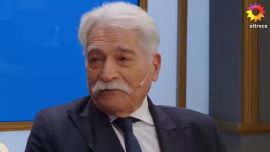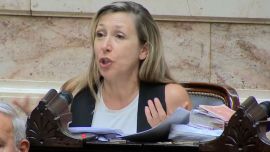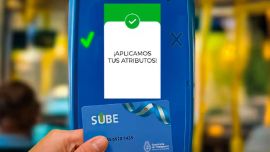The silent battle for the tender to operate Buenos Aires’ Subte underground transport network is finally starting to boil to the surface.
The system’s historic operator, Metrovías, owned by the Roggio Group, did what it could with what it had. But now City Mayor Horacio Rodríguez Larreta’s government wants more.
On the mayor’s explicit instructions, City officials went searching for the biggest names in the world. Rodríguez Larreta also clarified that prospective bidders would not have to be associated with a local company – a particularly important point, given recent graft allegations in public-private endeavours stemming from the so-called “notebooks” corruption scandal.
For Rodríguez Larreta and President Mauricio Macri’s PRO party, the chance to be seen alongside a French, English or German company as a new partner for the Subte could earn it points ahead of the October elections.
It would also bolster attempts at integrating Argentina with the rest of the world.
There are three alliances currently fighting for the contract, which will grant the winner control of the Subte for 12 years, with the possibility of a three-year extension.
Metrovías is partnering German firm Deutsche Bahn for technical support. Helport, which is part of Argentine bus i n e s s m a n E d u a r d o Eurnekian’s empire, is associated with the French firm Keolis, the majority partner in the bid. And RATP, the operator of the París Metro, is the only bidder with no local associate.
Aldo Roggio and Eurnekian are both caught up in the notebooks scandal, however. This would seemingly offer RATP some advantage, were it not for the fact that the French firm
Alstom is poised to provide technical support. Alstom was previously involved in the failed bullet train initiative of former president Cristina Fernández de Kirchner. In 2008 it signed a contract for US$1 million with Caesa, a company owned by Manuel Vázquez, the frontman of disgraced former transport secretary Ricardo Jaime. Two French employees of the firm were indicted in that case, with both acquitted due to the statute of limitations.
‘KNOW-HOW’
The timeframe for the tender process is not entirely clear. Its formula is based on the bidder’s technical offering (10 percent), its business plan (24 percent) and the price it will charge the City’s firm, Subterráneos de Buenos Aires (60 percent).
City Transport Minister Franco Moccia told this journalist that the “know-how” of an international operator with experience in managing old systems like the Subte is crucial.
The City is also interested, he said, in a future of driverless formations, as well as the investment strategy of each prospective operator.
The viability of each technical and economic proposal will be determined by a team at the Metropolitan Transport Author i t y o f B a r c e l o n a a n d Argentina’s University of San Martín.
The winner could be announced in July or August, with the transition period beginning in September. Metrovías’ current contract ends on December 31.
Why should an international company risk operating a public transport system in as difficult a market as Buenos Aires with a shaky exchange rate, the possibility of a major political change at national level and Argentina’s pugnacious trade unions?
“The difference is the contract, which is much better now,” explains Moccia. “They laughed at us when we said Metrovías is a good operator, the problem here is the contract.”
Since this is a tender for management and maintenance, there are no provisions for investments in infrastructure and rolling stock with the focus on the service given passengers (among other quality criteria), which will be paid independently of the transport fare. The contract is renegotiable over two years with a clause for correcting macro-economic variables in pesos.
The Parisians seem on the ball. Quick off the mark, they took a group of Argentine journalists (including this one) to familiarise themselves with their operations, presenting their plan. They focus on investing in the modernisation of Polvorín workshop, a rolling KEOLIS LYON Runs the Lyon Metro in France and bidding with Eduardo Eurnekian’s Corporación América as its local partner. RATP One of the Paris underground operators where it overhauled and automatised Line 1 without interrupting service. METROVÍAS Running the service for the last 24 years with its contract expiring and renewed several times , technically advised by Deutsche Bahn. stock storage and maintenance workshop in Buenos Aires, intending to increase productivity so that over 80 wagons can be repaired and maintained annually instead of around 20 (according to their figures).
INVESTMENTS
How much could an investment like that cost? Although nobody risks placing a figure, market sources estimate anything between US$10 and 40 million. Another point in favour of RATP is their knowhow in automated systems after transforming Line 1 of the Paris Metro into completely driverless without interrupting the service, separately from similar designs for 14 other lines. They also pride themselves on their negotiating skills with trade unions, suggesting that the same tactics which worked in Paris – constant negotiation, retraining and a commitment not to fire anybody – would also work in Buenos Aires.
Sources from the HelportKeolis group (the latter also vastly experienced in automated trains) indicate that they aim for better control and management via digitalisation.
“We don’t need to make any major investment to improve the service,” they explain, pointing to the technical advice of Transport for London, the operators of the British capital’s underground system, as an extra plus.
Metrovías thinks that both RATP and Helport-Keolis are running short with their investment proposals. As the current operator, the Roggio Group has all the information at hand to draw up an integral plan without need for in-depth due diligence.
“Our investment proposal is far more aggressive,” says Roggio’s public relations manager Gustavo Pedace.
The current operator questions its critics, arguing that its contract did not allow it to make investments such as improving Polvorín or buying wagons.
“Between RATP and ourselves lies a chasm, our investment plan is hundreds of millions, not US$5-10 million – we don’t know what’s expected of RATP,” they say.
As for the problems of obtaining financing in the light of the notebooks scandal, Pedace registers confidence: “Metrovías is creditworthy at international level and our plan had to be approved by Germans [Deutsche Bahn].”
Both Metrovías and HelportKeolis train their guns on RATP, describing it as a ramshackle bid presented by a company created a couple of days beforehand with a social capital of 100,000 pesos while the tender stipulates a track record and a floor of 15 million.
But Paris shrugs this off. “Winning the tender will be an immense joy for us,” said Laurence Battle, chairwoman of the RATPdev board of directors, “and the contract contemplates the risks.”
With an annual six billion pesos awaiting whoever wins, and delivers the goods.


























Comments